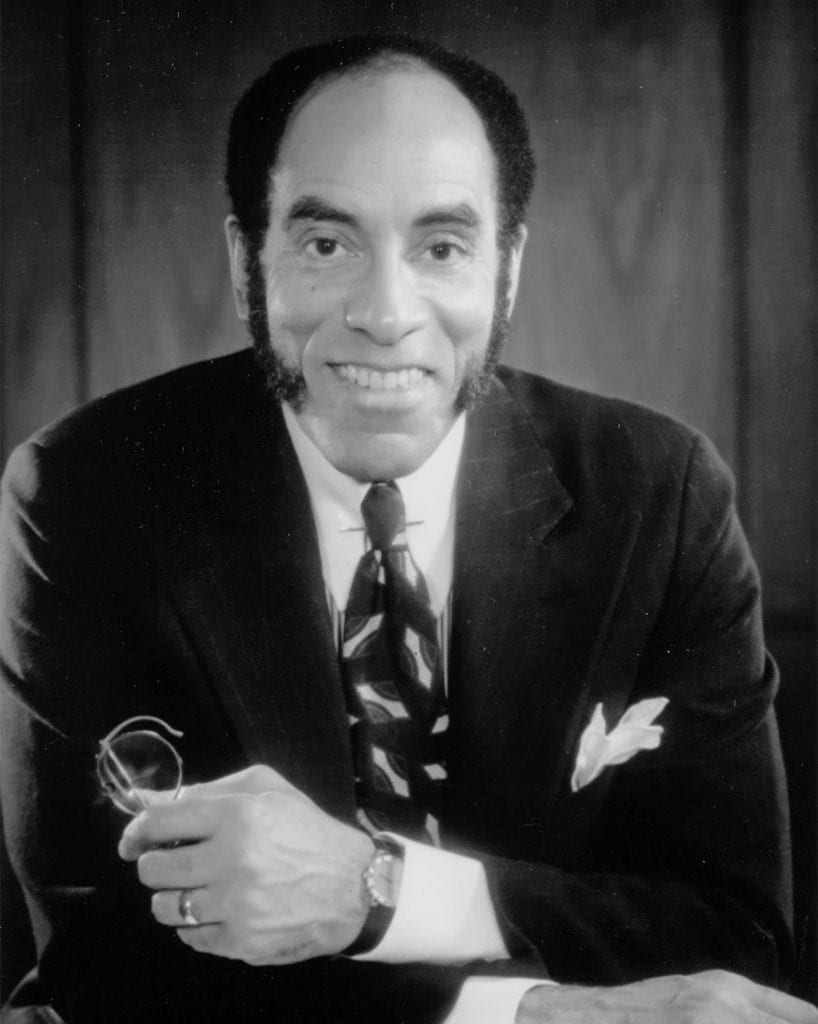
Earl G. Graves Sr., a noted entrepreneur who advocated for African American business success in the pages of Black Enterprise magazine, died April 6 of complications from Alzheimer’s disease at a care facility in White Plains, New York. He was 85.
Tall and lean with trademark sideburns, Graves cut an imposing figure as a publisher, corporate board member and philanthropist. He launched Black Enterprise in 1970, positioning it as the periodical Bible for striving black business owners.
Launched with a loan of $175,000, Black Enterprise attracted advertising support from major consumer brands and featured a powerful board of advisers, including U.S. Sen. Edward W. Brooke III of Massachusetts. The magazine’s print circulation peaked at half a million in the early 2000s.
The son of West Indian immigrants — his father, Earl Graves, came from Barbados and his mother, Winifred Sealy Graves, from Trinidad — Graves was born in Brooklyn and raised in the Bedford-Stuyvesant neighborhood of the borough.
His first job was selling Christmas cards at age 7 in wartime New York. He attended public schools and studied business at Morgan State University while working his way through college. After graduation, he joined the Army, becoming an Airborne Ranger and maintaining a ramrod posture the rest of his life.
After leaving the Army, Graves returned to Brooklyn, where he worked in real estate and became active in local politics. He came to the attention of former U.S. Attorney General Robert F. Kennedy when he organized a massive Brooklyn rally for Kennedy’s 1964 U.S. Senate campaign.
Impressed, Kennedy hired Graves as a staff assistant, and he managed Kennedy’s New York City office until the senator’s death in 1968. During a renaming ceremony in honor of the late senator beneath the deck of the Triborough Bridge in 2008, Graves said his work on Kennedy initiatives like the self-help Bedford Stuyvesant Restoration Corporation inspired him to find a way for African Americans to build wealth through economic self-improvement.
“He spoke often of ‘seeking a newer world,’” said Graves. “And that’s exactly what I set out to do.”
While building up Black Enterprise, Graves served on numerous corporate boards, including the insurance giant Aetna, American Airlines and the automaker DaimlerChrysler.
In 1997, he published “How to Succeed in Business Without Being White: Straight Talk on Making it in America,” a New York Times bestseller. His emphasis on do-it-yourself drive and opportunity echoed black entrepreneurial forebears from Booker T. Washington to Marcus Garvey and Elijah Muhammad.
“The white-dominated business world needs to understand that we don’t want charity,” Graves wrote. “We want to do business. We don’t want guaranteed success. We want the opportunity to earn it.”
Graves retired as Black Enterprise’s chief executive in 2006. His oldest son, Earl Graves Jr., took over as publisher of the magazine, which now prints periodically while focusing on social media, its website and events.
He was active in numerable charitable causes and helped establish the Earl G. Graves School of Business and Management at his alma mater.
Graves is survived by two other sons, John and Michael; and eight grandchildren. His wife, Barbara Kydd, died in 2012.






